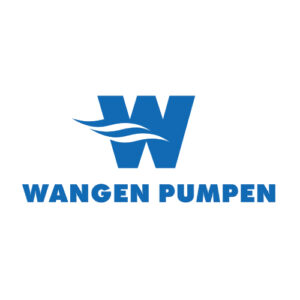Mechanical Product Partner
Wangen Pump
Wangen Pumpen comes from the company’s head office and main production site, which are located in Wangen in the Allgäu region of Germany. This is their home: in the southern part of Germany where three countries – Austria, Switzerland and Germany – come together at Lake Constance.
Since 1969 they have produced pumps for a wide variety of transported medium for diverse branches.

Process Material Dosing
Flocculents (iron and aluminium salts) and flocculation agents (organic polyelectrolytes such as polyacrylamide) are used to remove colloidal materials, fine dirt particles and phosphorus from waste water . The flocculents cause the substances in question to precipitate in the form of microflakes. The flocculation agents accelerate this cleaning process by inducing an electrochemical reaction which results in the microflakes joining together to form fast sinking macroflakes.
In addition, lyes or acids are pumped into the waste water for neutralization or pH adjustment purposes. Adding metallic salts, milk of lime and polyelectrolytes optimizes the dewatering of the sludge.
Whichever chemical agents are added, the important thing is the accuracy of dosing. This criterion is best met by WANGEN pumps from the KB series, preferably in high-grade steel design.
Mechanical & Biological Waste Water Treatment
According to the wastewater regulations in force, domestic and industrial waste water must be subjected to mechanical-physical, biological, and chemical treatment in several stages in order to remove its dirt load. With our broad range of pumps we offer the optimum process engineering solution for handling the sludge produced in the various cleaning stages.
Thanks to the rugged construction of the pumps, their flow-optimized geometries and the use of energy-efficient drives, customers of Pumpenfabrik Wangen are guaranteed a high level of economic efficiency.
Sludge Dewatering & Sludge Drying
During preliminary sedimentation and final sedimentation in waste water treatment plants, the resulting concentrated sludge is either dewatered directly or fed via the anaerobic fermentation stage to sludge dewatering units. This conveying task is performed by the suction pumps of our KB and KL series.
In the dewatering units the sludge is dewatered with the help of decanting centrifuges, traveling screen presses, rotary filter presses or chamber filter presses and then pumped with a dry substance content (DS) of 20–45% for further treatment into containers, sludge tanks or directly to the sludge drying station. The pumping characteristics of the dewatered sludge varies in this case according to the DS content, composition and chemical conditioning. Accordingly varied are the pumping requirements which we meet with the specially developed jaw and silo pumps of our KL-R, KL-RÜ, KL-RS and KL-RQ series.
